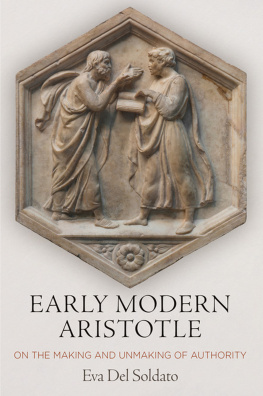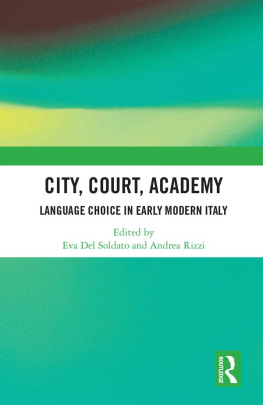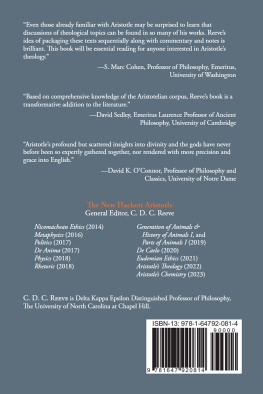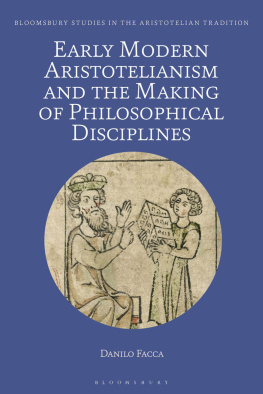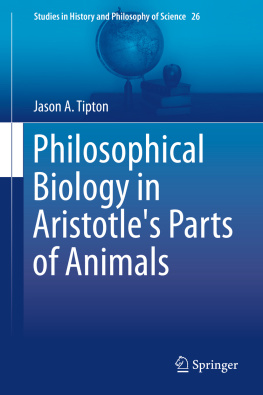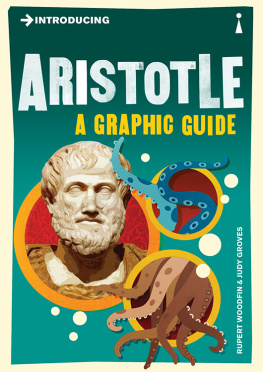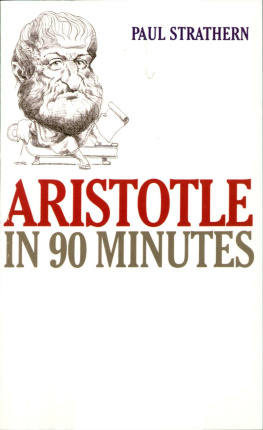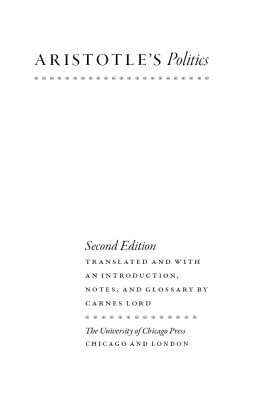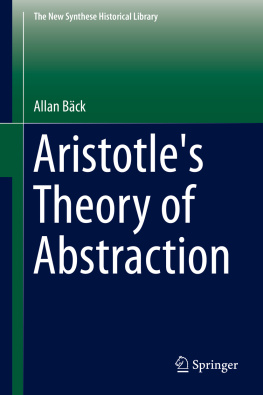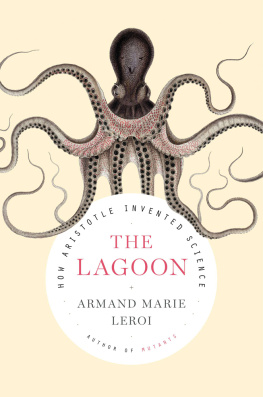
Early Modern Aristotle
EARLY MODERN
ARISTOTLE
On the Making and Unmaking of Authority
Eva Del Soldato
UNIVERSITY OF PENNSYLVANIA PRESS
PHILADELPHIA
Publication of this volume was aided by a grant from the
Lila Wallace-Readers Digest Publication Subsidy at I Tatti.
Copyright 2020 University of Pennsylvania Press
All rights reserved. Except for brief quotations used for
purposes of review or scholarly citation, none of this book
may be reproduced in any form by any means without written
permission from the publisher.
Published by
University of Pennsylvania Press
Philadelphia, Pennsylvania 19104-4112
www.upenn.edu/pennpress
Printed in the United States of America on acid-free paper
1 3 5 7 9 10 8 6 4 2
A catalogue record for this book is available from
the Library of Congress
ISBN 978-0-8122-5196-8
But finding the deception is not enough.
Its reasons must also be unveiled.
Marc Bloch, The Historians Craft
CONTENTS
CHRONOLOGY

1438 | Council of Ferrara-Florence begins |
1439 | Gemistus Pletho composes De differentiis |
1453 | Fall of Constantinople |
c. 1457 | George of Trebizond composes his Comparatio |
1469 | Bessarion publishes the In calumniatorem Platonis |
1470 | George of Trebizonds edition of Eusebiuss Praeparatio evangelica is printed |
1484 | Marsilio Ficino publishes the complete translation of Platos works |
1513 | Bull Apostolici regiminis at the Fifth Lateran Council |
1517 | Martin Luther publishes the Ninety-Five Theses |
1531 | Juan Luis Vivess De disciplinis |
1540 | Agostino Steuco publishes De perenni philosophia |
c. 1540 | Francesco Vimercato composes De placitis |
1544 | First condemnation of Petrus Ramus |
1545 | Council of Trent begins |
1573 | Azariah deRossis Light of the Eyes |
1576 | Teaching of Plato in die festivo at Pisa, which ends, through an interruption, in 1635 |
1592 | Clement VIII establishes a chair of Platonism in Rome; it will last until 1598 |
1596 | Francesco Patrizis Nova de universis philosophia is inserted donec corrigatur in the Index of Prohibited Books |
1598 | Hofmann-Streit in Helmstedt |
1605 | Henri IV decides not to establish a chair of Platonism in Paris |
1605 | Piccarts Oratio de ratione interpretandi |
1606 | James I invokes the Oath of Allegiance |
1610 | Bellarminos Responsio ad librum inscriptum triplici nodo triplex cuneus sive Apologia pro juramento fidelitatis |
1612 | Galileos Letters on the Sunspots |
1624 | Teaching of Aristotle made mandatory in Paris |
1632 | Galileos Dialogue Concerning the Two Chief World Systems |
1633 | Trial against Galileo |
1645 | Fortunio Licetis De pietate Aristotelis |
1652 | First booklet by Melchior Cornaues featuring Aristoteles redivivus |
1688 | Trial against the ateisti in Naples begins |
1697 | Giuseppe Vallettas Discorso filosofico |
1773 | Herders On Shakespeare |
Introduction
In his Nicomachean Ethics (1096a 1115) Aristotle affirmed that despite his friendship with Plato, he was a better friend of the truth, and therefore rejected his teachers authority, implying that the pursuit of philosophy does not entail obedience to any authority. Yet over the centuries Aristotle himself became the authority par excellence in the Western world. And a wide variety of thinkers ostensibly preferred to keep him as a friend rather than contradict him. Even Galileo Galilei (15641642), the champion of the new science, opposed to the traditional doctrines rooted in Aristotelianism, eagerly described himself as a disciple of the ancient philosopher. Galileo had good reason to make this claim because for him, and for many other philosophers, scientists, and intellectuals of the early modern period, the approval of an authority like Aristotle was simply too advantageous to relinquish. Early modernity is often described and characterized as an era during which authority was challenged. But the argumentative strategies employed in this period must be reconsidered and reevaluated. In fact, recourse to the authority of Aristotle shaped philosophical and scientific debates throughout Europe until the dawn of the Enlightenment, not only among traditionalists interested in keeping Peripateticism alive, but also among novatores.
It may seem counterintuitive that even men engaged in updating the curriculum and elaborating novel visions of the world should appeal to the authority of an ancient philosopher like Aristotle when defending their agendas, to the extent that the association of a hotbed of Aristotelianism like Padua with decisive developments of the Scientific Revolution has been regarded by some as a historical paradox.
As recent studies have highlighted, the attitude toward one or more of the ancient authorities was decisive in shaping the discursive strategies of early modern writers, philosophers, and scientists. Authors who were excluded from the canon of the great seventeenth-century philosophers, because of their reverence for ancient schools of thought, have recently been vindicated, for example in a collection of essays edited by G. A. J. Rogers, Tom Sorell, and Jill Kraye. During the early modern era, ancient authorities were therefore pulled in a constant tug-of-war, at times portrayed more in terms of rhetoric than of their ideas, yet with full awareness of their vital centrality for intellectual debates.
The case studies in this book investigate the use and abuse of Aristotles authority in the early modern period, from both a transnational and an interdisciplinary perspective. Indeed, for as long as he maintained an institutional presence in universities and academies, Aristotle was invoked in writings and treatises that made use of his authority, sometimes through manipulations of his philosophical doctrines, mental experiments, and fanciful narratives of his life.
As is well known, particularly from the twelfth century onward, the Latin Christian world began to absorb pagan authorities into its institutions and cultural traditions. In a Christian context the elevation of a pagan thinker such as Aristotle to the status of an authority was not an obvious conclusion. Aristotle had argued against the creation of the world and was very ambiguous on the destiny of the soul, to mention only two upsetting aspects of his doctrines for a Christian readership. Nevertheless, he managed to become the backbone of Western university teaching and Scholastic theology for centuries to come. The acceptance of a pagan authority like Aristotle in a Christian framework therefore required negotiation and selection, cherry-picking, and justification: that is, relying on or justifying Aristotle when he was deemed useful, silencing him or acknowledging his limitations when his ideas were in clear conflict with faith. And the approach to Aristotles authority in the Western world became all the more complex when, in the second half of the fifteenth century, he was confronted by an adversary capable of eroding at least some aspects of his prestige, his teacher Plato.
Next page
